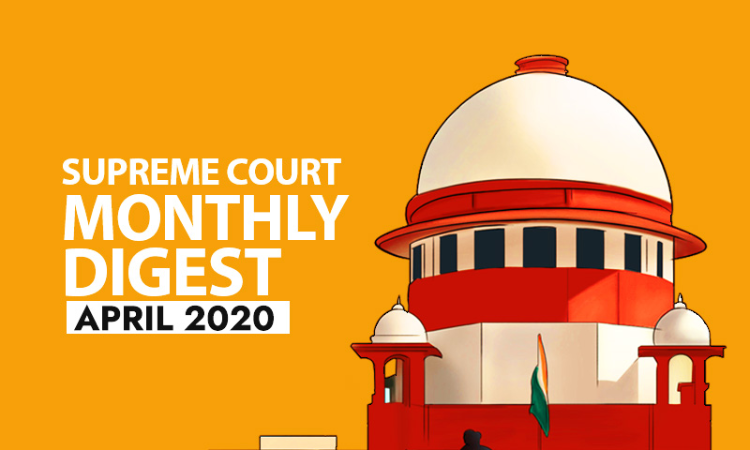- Home
- /
- Top Stories
- /
- Supreme Court Monthly Digest: April...
Supreme Court Monthly Digest: April 2020
Akshita Saxena
29 Jun 2020 10:35 AM IST
1. [TADA] Confession Of Co-accused Inadmissible Against Another Accused If They Were Tried Separately: SC While interpreting the scope of Section 15 of the Terrorist and Disruptive Activities (Prevention) Act, 1987, a Supreme Court bench comprising Justice S. Abdul Nazeer and Justice Deepak Gupta held that if for any reason, a joint trial is not held, the confession of a co-accused...
Next Story



